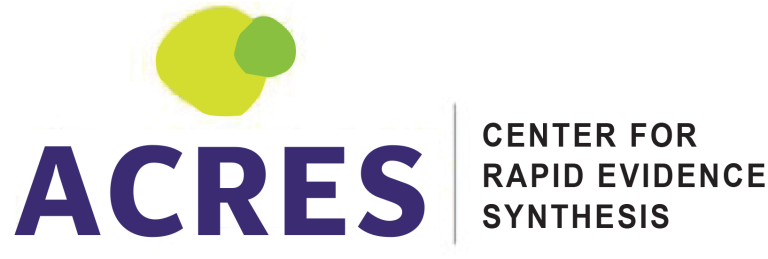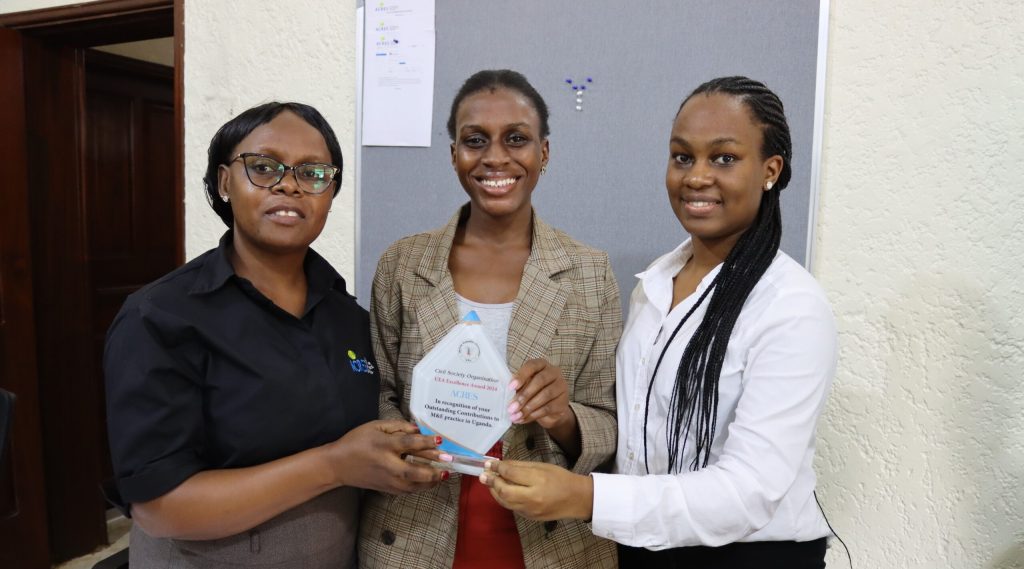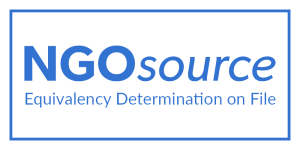ACRES’s success story over the years
The Center for Rapid Evidence Synthesis (ACRES) made significant strides in promoting Evidence-Informed Decision Making (EIDM) in Uganda has over the years, yielding numerous success stories. Notable achievements include:
- Informing Policy with Rapid Response Briefs: ACRES responds to policy questions from the Ministry of Gender, Labor and Social Development, Ministry of Health, and Ministry of Education and Sports, tackling different issues for example on promoting exclusive breastfeeding in Uganda’s informal economy.
- Revised the Ministry of Health (MoH) governance guidelines: ACRES has supported the MoH in revising its governance structure to include requirements for Evidence-Informed Decision Making (EIDM). This ensures that all levels within the ministry use evidence-informed policy briefs for decision-making.
- Strengthening MoH departments: ACRES has built capacity within the MoH’s policy analysis unit and health information division for EIDM. This includes agenda setting for priorities and generating evidence briefs.
- Technical support for MoH Scientific Advisory Committee: ACRES provided rapid evidence syntheses to support critical decisions like the rollout of COVID-19 vaccines for children.
- Extending Breastfeeding Regulations: ACRES provided evidence on the needs of informal sector workers, leading the MoH to consider separate guidelines for breastfeeding support in this sector.
- Strengthening RIAs: ACRES joined the Office of the President’s Policy and Capacity Building department to strengthen the use of evidence in Regulatory Impact Assessments (RIAs) across various sectors.
- Reducing teenage pregnancies: ACRES helped contextualize evidence on involving males in teenage pregnancy prevention programs in Kamuli district, leading to: increased male engagement in reproductive health services, improved health outcomes for adolescents, as well as informed decision-making by district policymakers and healthcare providers
- Supporting district responses to COVID-19: ACRES provided rapid response briefs on infection control and community outbreak management, enabling districts to respond effectively before official MoH support arrived.
- Evidence-informed Regulatory Impact Assessment: ACRES contributed to the development of a Regulatory Impact Assessment (RIA) in the education sector as requested by the Department of Policy Development and Capacity Building under the Office of the President to support RIAs development and review with evidence, ensuring evidence-based decision-making. This set a precedent for future RIAs, promoting a culture of evidence-informed policy development. ACRES also initiated discussions to enhance the objectivity and systematic approach of analysis in RIAs, potentially leading to more robust policy decisions.
- Evidence Support for Teachers’ Professional Code of Conduct: ACRES was invited by the Education Service Commission (ESC) to provide evidence support for the review and update of the Teachers’ Professional Code of Conduct, demonstrating the recognition of ACRES’ expertise in evidence-informed decision-making. This collaboration led to a revised Code of Conduct that reflects best practices and international standards, improved teacher professionalism and ethical conduct as well as enhanced teacher accountability and performance management
- Capacity Building for CSOs: ACRES trained 15 civil society organizations (CSOs) in evidence-informed decision-making for advocacy, enhancing their capacity to influence policy decisions. This increased the capacity of CSOs to use evidence for advocacy. ACRES also facilitated the creation of a network of organizations and individuals promoting evidence-based advocacy in Uganda.
- Collaboration with new policymakers at the national and district levels (14 new in the health sector), including persons in the Ministry of Gender, Labour, and Social Development (MGLSD), the Office of the President (OP), Parliament of Uganda (PU), and civil society organization (CSO). The CSOs included the International Baby Foods Action Network (IBFAN) and the Youth Advocacy Network of Uganda (YADNET).
- ACRES developed a framework for the evaluation of the impact of rapid knowledge translation models. Using a multi-method approach that involved critical interpretive synthesis (CIS), the framework was completed, and a manuscript published.



